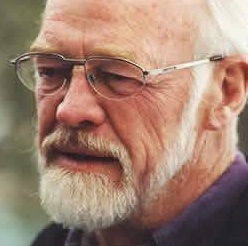 Free book offer at bottom of this post!
Free book offer at bottom of this post!
Pastors need to hear from fellow pastors. There’s a place for pastors listening to biblical experts — when they study the Bible. There’s a place for pastors listening to theologians — when they need to study theology. But there’s a place where only a pastor can speak to another pastor. I’ve been there, and I have to sit back and listen and sometimes I can’t even enter into the conversation because it’s out of my (pastoral) depth. I know what the words mean, but they don’t resonate with my experience.
Hence, I recommend two recent books on pastoral work. The first is by Mel Lawrenz, pastor at Elmbrook outside Milwaukee, and his new book addresses bringing the whole church into a whole ministry: Whole Church: Leading from Fragmentation to Engagement (J-B Leadership Network Series)
. His vision is for a “whole” church — with God, God’s people, the community, and the world. This book is for pastors and by a pastor who has been there: with fragmentation and the concrete steps involved in healing and bringing back to wholeness. I really liked part two:
. His vision is for a “whole” church — with God, God’s people, the community, and the world. This book is for pastors and by a pastor who has been there: with fragmentation and the concrete steps involved in healing and bringing back to wholeness. I really liked part two:
It addressed closing the gap with God through worship and teaching;
closing the gap with people through real fellowship;
closing the gap with the community through more than a thousand points of light;
closing the gap for the whole world by engaging the world.
One of the illuminating features of this book for me was about the dynamics and how Mel emphasized fostering a culture of change and shifting. His last section was on choosing wise leaders, and I don’t know that I’ve read anything quite like this.
Now here’s the point: pastor, you can trust Mel; he’s been there; he’s experienced it after all these years at Elmbrook; he’s been there and he’s been through it and he’s lived to guide others through that experience.
The second book is a full education in pastoral formation: The Power to Comprehend with All the Saints: The Formation and Practice of a Pastor-Theologian
. The books has short chapters by pastors about theological and pastoral topics — all shaped by an institute at Princeton — the Pastor-Theologian Program. Again, the studies are by pastors, astute pastors, and they cover topics pastors want to hear from pastors about.
. The books has short chapters by pastors about theological and pastoral topics — all shaped by an institute at Princeton — the Pastor-Theologian Program. Again, the studies are by pastors, astute pastors, and they cover topics pastors want to hear from pastors about.
I mention a few: the Bible, children, college, seminary, doubt, reading, struggles, significant events, the call, preaching, teaching, psychology, administration, sacraments, evangelism, prayer, and death. All by pastors.
This book is a course in pastoral theology and the theology of pastoring in the dimension of formation. I will send this book — free — to the pastor who writes the best one paragraph essay on spiritual formation and the pastor.
And I will ask my pastor friends — Jim Martin and John Frye — to be the judges.

